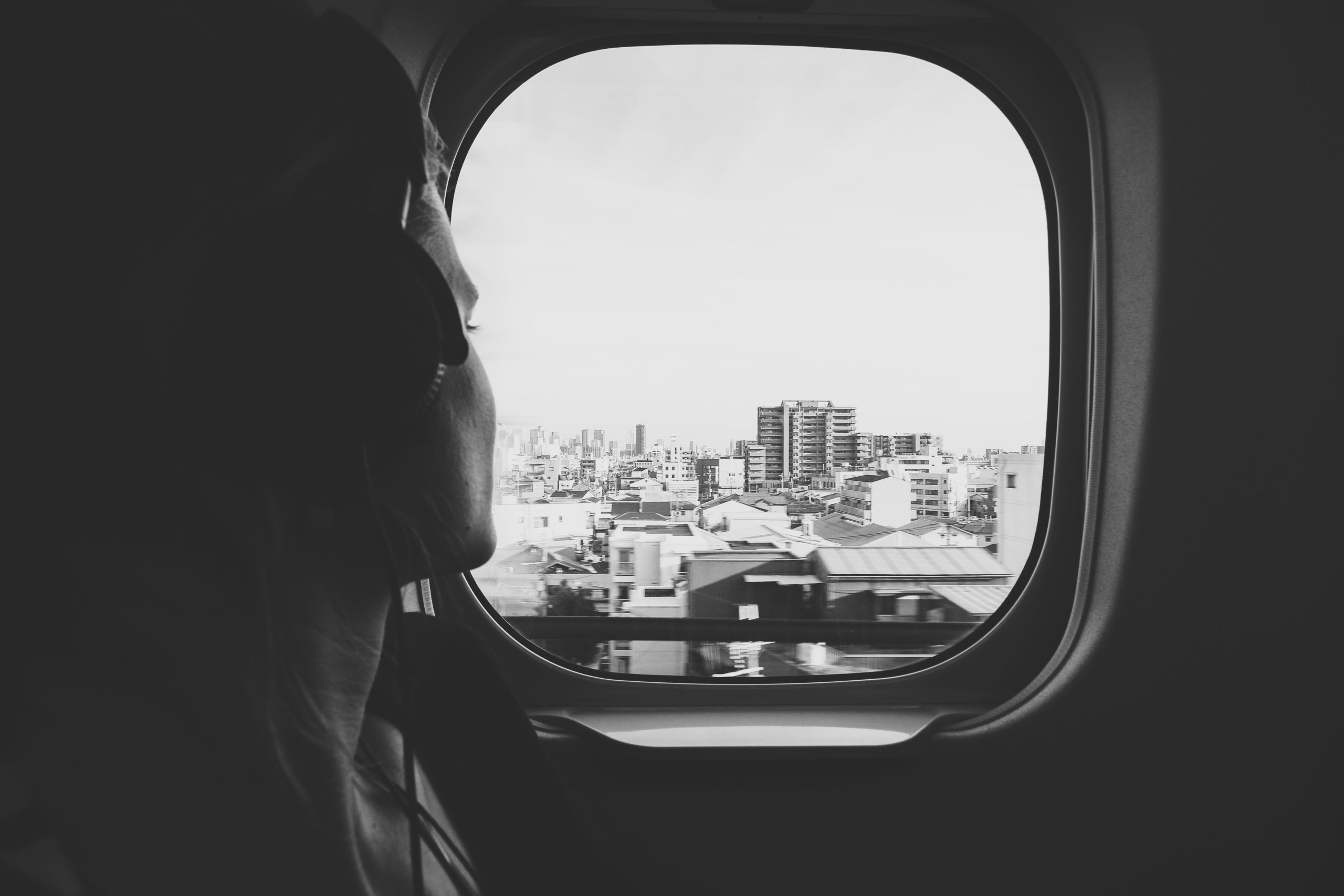I was surprised by the powerful impact these changes made on my life and work.
In 2016, my husband and I spent a few weeks traveling through Sri Lanka and New Zealand for our honeymoon. What I love about traveling is that in addition to seeing incredible vistas and experiencing the local culture, you also have a LOT of downtime — time spent in the car, in the airport, being bored, without access to wifi. In this boredom, we chatted, read books, and spent hours staring out the window letting the subconscious part of the brain wander. Research shows that you do some of your best problem solving when your subconscious brain is running in the background, conditions much harder to achieve when your conscious brain is focused on something else.
So, I knew that this was good for you, but I was surprised at the flow of new ideas that happened when I wasn’t constantly consuming information. One “aha” moment happened at the Singapore airport during an 8 hour layover on our way to New Zealand. I was aimlessly wandering around the bookstore (one of my favorite pastimes) and had one of those “bolt of lightening” moments where a book idea struck me. Note – I am not an author and I have never written a book. But my subconscious brain was likely thinking about my podcast, women in leadership, and how to bring some of these topics together. I spent several jetlagged nights in the next week writing furiously outlining the book structure, topics, and stories that I wanted to include.
Coming back from the trip, I wanted to see if I could recreate those moments. How can I bring more focus to my day to day and reduce the onslaught of information to allow my subconscious to be more active.
In January 2017, I focused on four habits that actually worked. Incorporating these into my daily life helped me show up better at work and contributed more strongly to career successes. I stopped doing this halfway through the year and figured that there was no time like the present to start these habits back-up again.
Are you up to join me for a 30 day challenge to create more focus?
#1 Remove Facebook from your phone.
Like most people, I use Facebook to keep up with friends and as one of my primary news sources, since my friends tend to post very interesting articles. When I’m on my desktop, I’m still able to get the benefits of a quick perusal. But when FB is on my phone, it becomes a crutch. Instead of letting my mind wander for a few minutes while I’m in line at the grocery store or waiting BART, the desire to be stimulated at all times wins.
#2 Sleep with your phone in another room.
When my phone is next to the bed, it’s the first thing I pick up in the morning and the last thing that I look at before going to sleep. I can easily stay up an extra 45 minutes researching the latest DIY trends to hydrate my face (face mask of yogurt, oatmeal, and honey) or staring at an endless stream of beautiful Instagram photos instead of just going to sleep. At the end of the day, when your willpower is sapped, the temptation to be on your phone is strong!
When I moved my phone and charger to the living room, it made a huge difference. I went to sleep on time, I read more books, and I woke up more calm.
It also worked in the morning. Instead of checking email first thing in the morning, I waited until I sat at my desk, and this allowed for good subconscious brain time in the morning.
When I shared this tactic with friends, the most frequent response was, “But my phone is my alarm clock.” Good news folks, you can still purchase a cheap analog alarm clock as a substitute.
#3 Meditate for 20 minutes every morning.
This is not new advice, and I had been trying to create a meditation practice in the mornings for months. I take the train to work, and this past year I would sometimes meditate for 10 minutes in the morning. But it wasn’t having enough of an impact and I read recently that 20 minutes was the magic number.
Week 1 was painful. I’ve commuted from San Francisco to the Peninsula for the past eight years. The morning commute was my time to power through emails. The desire to stop at 10 minutes and open my laptop was palpable. My hands started to twitch, my brain was racing, and every instinct in my body was telling me that I was wasting time and screaming at me to open my laptop. But I stuck with it, and each day meditation became easier.
What has the impact been? When I meditate consistently, I feel calmer, I’m less frustrated, and I have a clearer mind when trying to solve problems. The days flow smoothly and I accomplish more. The days when I don’t meditate seem a bit more chaotic.
If this is your first time meditating, start with whatever feels comfortable and with something that you can commit to every day. Be it one min, five minutes, or 10 minutes. Last year I was able to do 20 minutes because I had built in a practice of 10 minutes. This year, I’m starting from scratch with a new morning commute and even doing 10 minutes can be hard.
#4 Stop multitasking during meetings.
Research shows that constant multi-tasking deteriorates the brain over time. In addition, when you check email during meetings, you don’t pay attention to what is happening in the room. Contributions to the conversation are less impactful than they could be.
Of the four habits, this was the hardest for me to adopt. During my time at Google, I was conditioned to be checking email or messaging others during meetings. There is also an odd power struggle that happens. Keeping a laptop open signals “I’m too important and too busy to only be doing this one thing, so I need to get other things done too.”
For 30 days, I kept my laptops closed in *most* meetings. Keeping the laptop open, even if just to take notes, was too distracting. My most successful attempts were when the laptop was closed. On days that I meditated, being present in meetings was easier than on days that I didn’t meditate. Not multitasking during meetings forced me to concentrate on what was happening in the room and contribute in a more meaningful way.
Bonus habit #5 Read a book before bed.
If you implement these habits, one of the wonderful side benefits is one of more time. I am a voracious reader and coming back from vacation I remember what a luxurious feeling it is to read a book uninterrupted for hours at a time. Reading a long form book before bed (fiction, non-fiction, whatever you prefer) also helps to create focus. We spend most of our days skimming emails and reading short articles. Your brain is trained to focus on a select few important points and to move on. Reading a long form book teaches your brain to stay focused on one topic for much longer.
Putting this into practice:
If you don’t already have any of these habits today – DO NOT try and do all of them at once! Habit experts suggest starting with one habit at a time, build it up to a practice, and then layer on more. My recommendation would be to start with #1 and #2. Try that for 30 days before adding meditation and no multi-tasking to your routine.
Good luck! For more actionable leadership advice, please listen to my podcast, Unstoppable Women.

